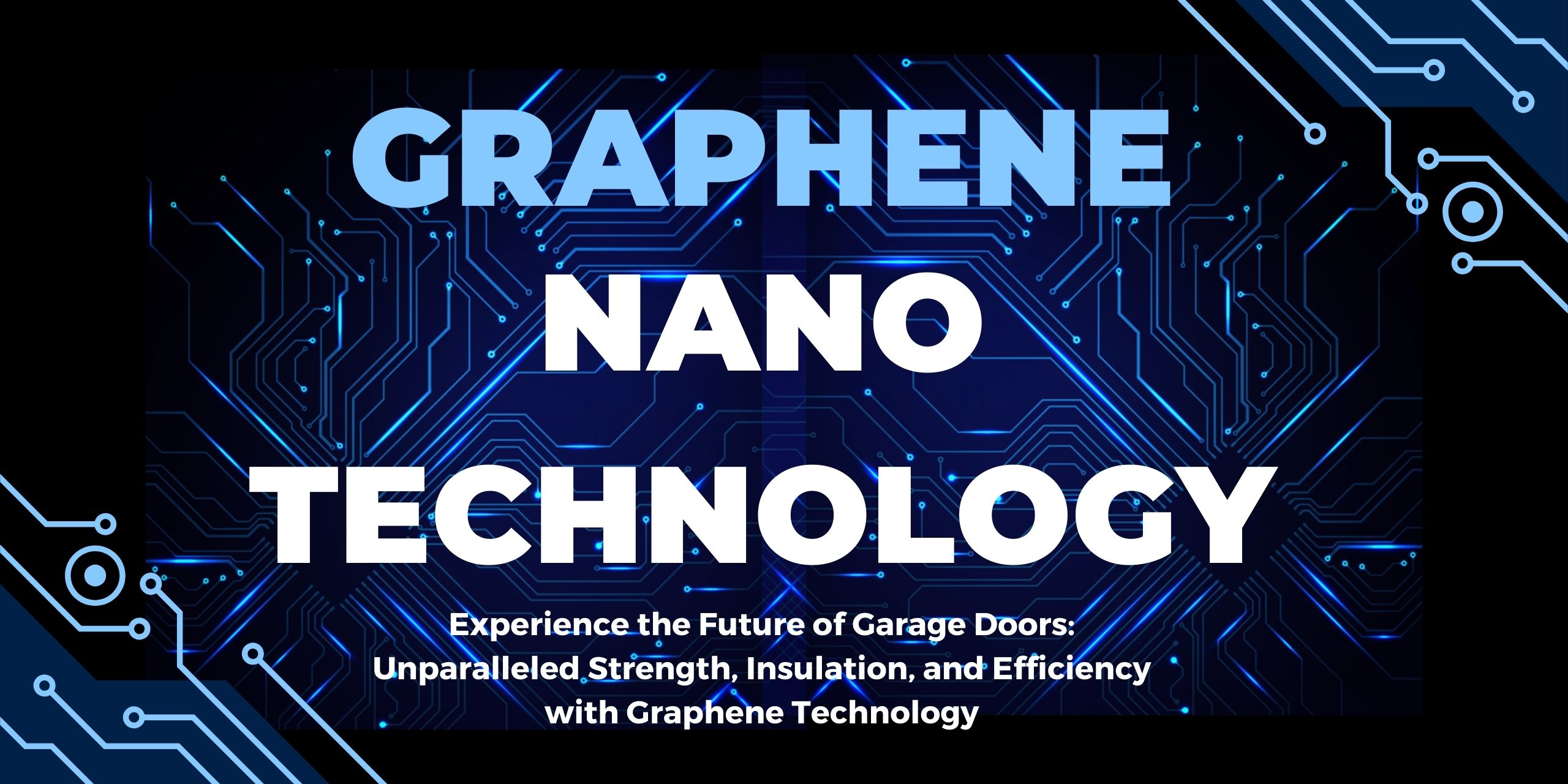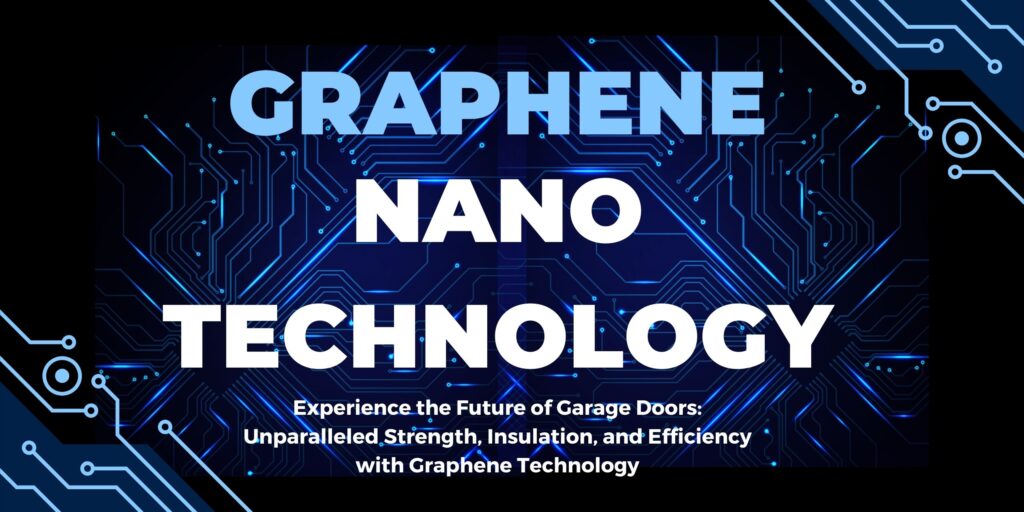
Graphene nanotechnology has quickly become a game-changer in several fields, from electronics to aerospace, in recent years. The introduction of this revolutionary material into the garage door industry has brought many advantages. Graphene-enhanced garage doors have transformed the industry thanks to their increased longevity, insulation, and energy efficiency, and we’ll dive into that realm here.
To explain what graphene is.
Graphene consists of a single layer of carbon atoms ordered in a honeycomb lattice in two dimensions. It has exceptional mechanical, electrical, and thermal qualities while remaining remarkably lightweight. Graphene’s unusual combination of properties has made it a sought-after material for a wide range of uses.

Garage Doors Reinforced with Graphene Last Longer
The increased longevity of garage doors reinforced with graphene is a major advantage. Due to its exceptional strength, graphene is a great material for garage door reinforcing. Garage door makers may make doors that are more durable to harsh weather and probable impacts by integrating graphene into the manufacturing process.
This greater resilience means the garage door will last longer without needing to be replaced or maintained as often. The result is that homeowners can save money and time thanks to the durability and dependability of their garage door.
High Levels of Insulation Efficiency
Insulation is an essential part of a functional garage door, as it keeps the garage at a constant temperature and blocks drafts. Graphene can be used as a high-quality insulator due to its exceptional thermal conductivity. Manufacturers can develop doors with better thermal performance by using graphene into the insulating layer of the garage door.
For homeowners who utilize their garages as workspaces or recreational spaces, a graphene-enhanced garage door can help keep the temperature stable inside the garage. The improved insulation also lessens the load on the HVAC system, which in turn reduces both energy use and costs, you may ask assistance from a professional garage door repair experts.
The improved energy efficiency of garage doors made with graphene is another benefit. The reduced need for heating or cooling the garage is a direct result of the enhanced insulating features we described. However, graphene’s electrical conductivity properties can be used to develop energy-saving smart garage doors.
Graphene-based sensors can be integrated into the garage door system to create doors that are aware of and react to their surroundings and the actions of their owners. Reduce heat loss or gain and energy consumption with the help of a smart garage door, which can close itself after sensing that the garage has been left open for too long.
These intelligent garage doors can also be connected to homeowners’ existing home automation systems, allowing them to remotely operate and monitor their garage doors.
Advantages for Nature
The use of graphene in garage doors has practical applications and helps preserve the environment. Due to its low energy requirements and abundant carbon sources, graphene is a very sustainable material. Manufacturers may lessen their impact on the environment and cut down on the use of nonrenewable resources by putting graphene into garage doors.
Graphene-enhanced garage doors have a smaller environmental impact since they last longer and require less maintenance. The waste generated from the disposal of old garage doors and the manufacturing of new ones is reduced as a result.

Graphene Nanotechnology and Its Potential Future Applications
It is anticipated that the use of graphene nanotechnology in garage doors will increase as the technology develops. Possible developments for the near future include:
Garage doors that automatically repair minor damage and scratches could be developed thanks to graphene’s special qualities. This would greatly increase the lifespan of the door and cut down on the amount of upkeep it needs.
Graphene-based solar cells might be integrated into the design of garage doors, allowing for the production of energy-independent doors that generate their own power, eliminating the need for external electricity sources and helping to create a more sustainable future.
Enhancements to security can be made possible by capitalizing on graphene’s electrical conductivity qualities to create cutting-edge security systems that prevent intrusion. Graphene-based sensors, for instance, may be installed in the garage door’s locking mechanism to sound an alarm or provide homeowners with some other form of notification whenever security is breached.
Graphene’s adaptability and adaptability allow for the creation and customization of garage doors. To design a garage door that fits the aesthetics of their home and their own tastes, homeowners can select from a broad variety of colors, textures, and finishes.
Graphene’s low density could pave the way for the creation of garage doors that are both lightweight and simple to set up. This would not only ease the burden of installation on homes, but also lessen the work required of garage door openers, which might increase their useful life.
Conclusion:
Graphene nanotechnology has enabled a leap forward in the development of high-performance, energy-efficient garage doors. Homeowners can now make a greener choice without sacrificing durability, insulation, or efficiency. We can anticipate even more ground-breaking, environmentally friendly solutions that completely reimagine garage doors and their applications as the garage door industry continues to embrace graphene technology.